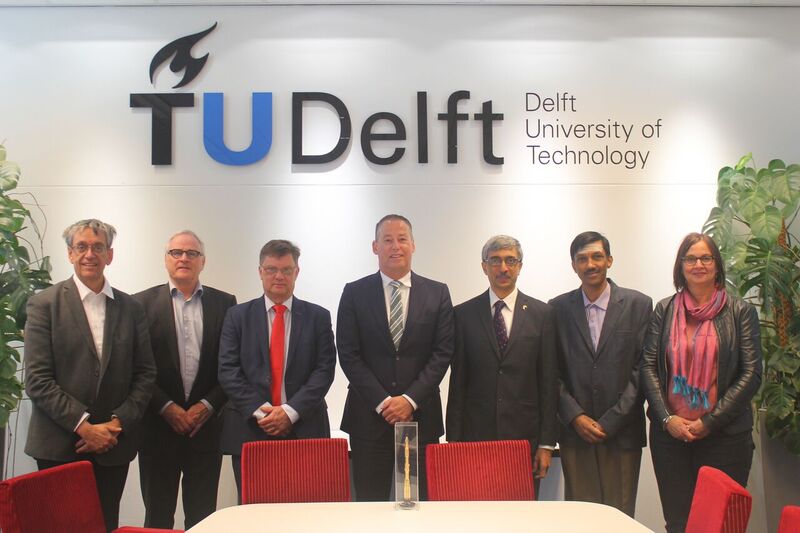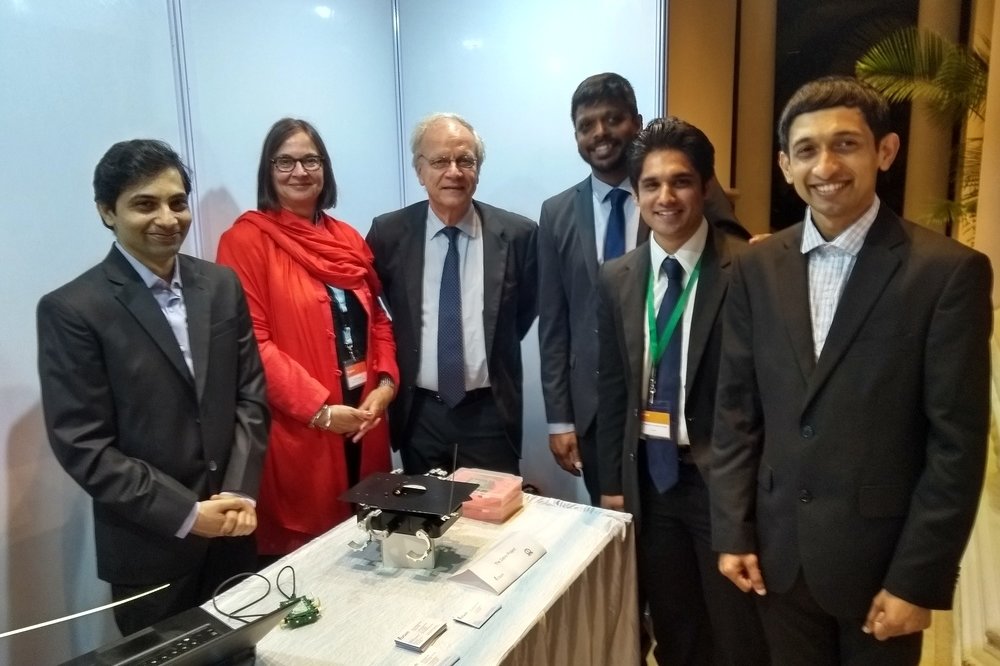Space
TU Delft and Indian counterparts have been collaborating in the domain of space and nanorobotics since the 2000s. For example, Delfi-C3, the first Dutch nano-satellite was launched by ISRO in 2008 and is still operational today.
In 2021, the Indian Institute of Space science and Technology (IIST) and The Delft University of Technology (TU Delft), the Netherlands signed a MoU for research collaboration, which was approved by the Indian Cabinet.
TU Delft students and staff are now with partners from industry and other educational institutes at work to complete the qualification model of the world’s smallest and lightest moon rover yet, the Lunar Zebro. A team of 50+ engineers and researchers are developing this rover that can explore the moon's surface semi autonomously. The maximum mass of 3 kg and its survivor skills in harsh environments are the most challenging constraints the team has to work with. A Zebro is a six-legged swarm robot. The swarm can perform complex search and reconnaissance tasks such as exploration of inhabitable terrains, tunnels, and caves or form a self-deploying and self-repairing sensor network. The idea is that a space mission becomes more effective if an Internet-of (Swarm)Robots support bigger rovers and astronauts.

